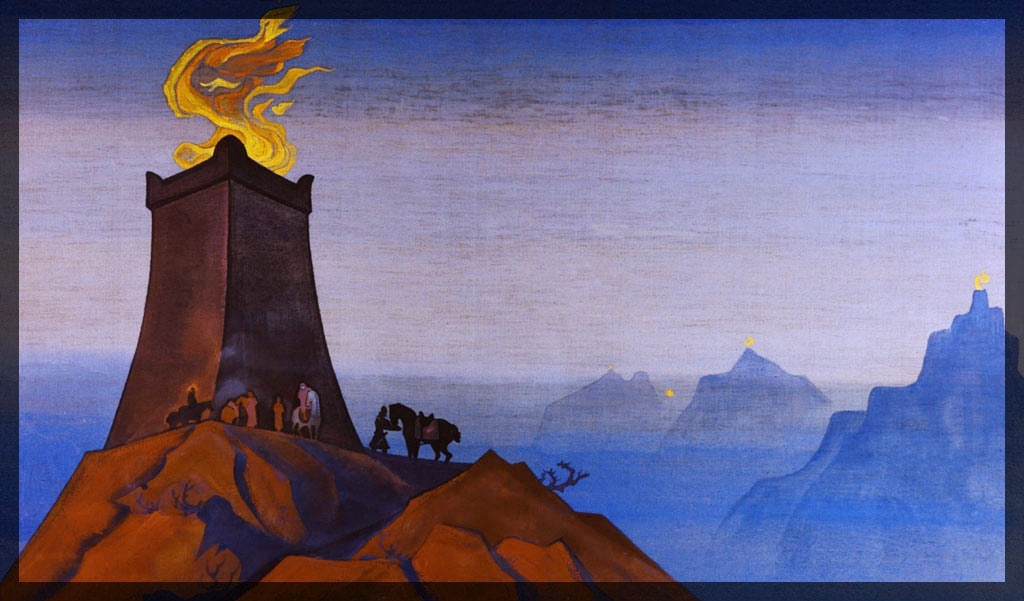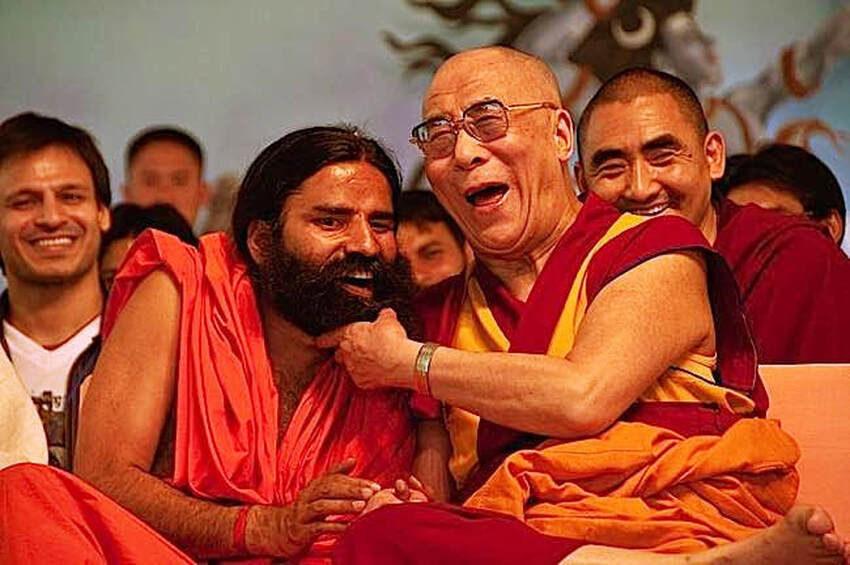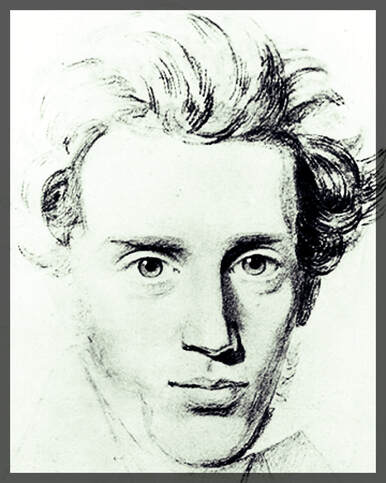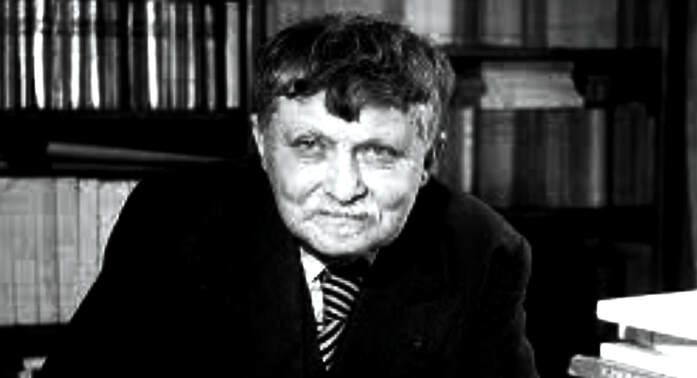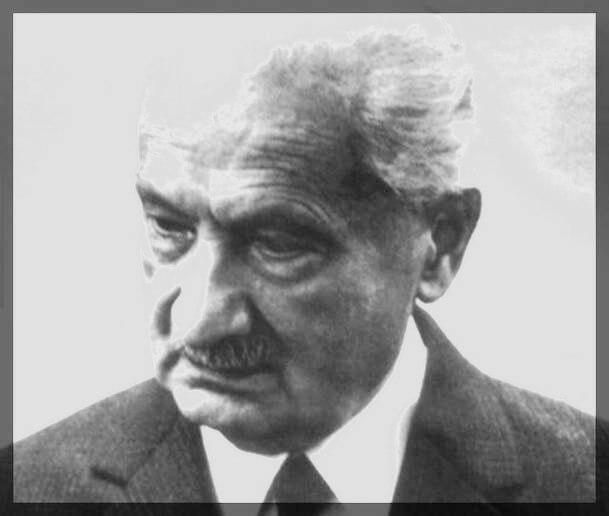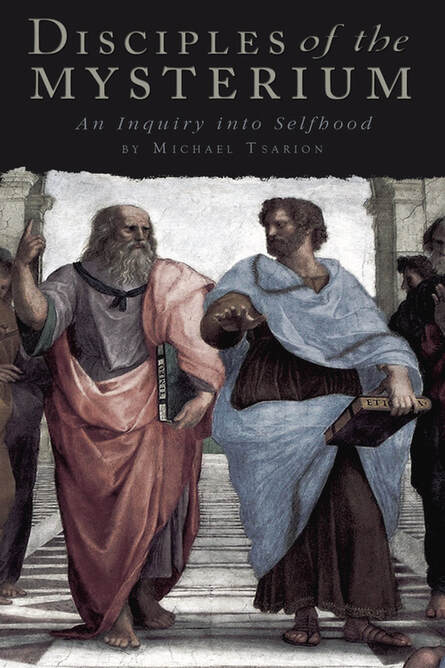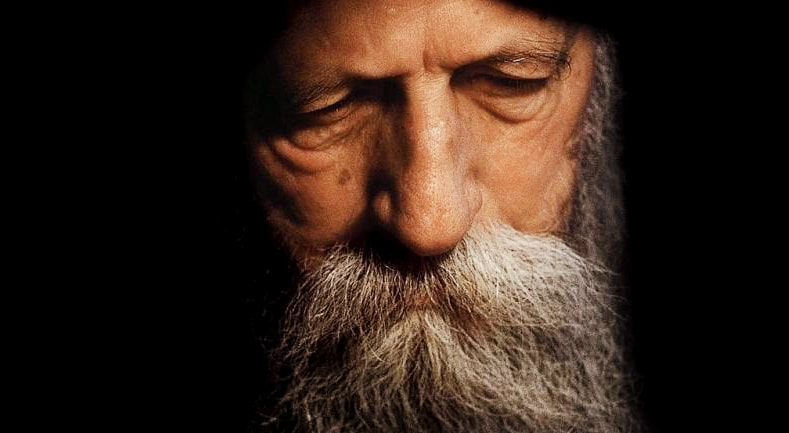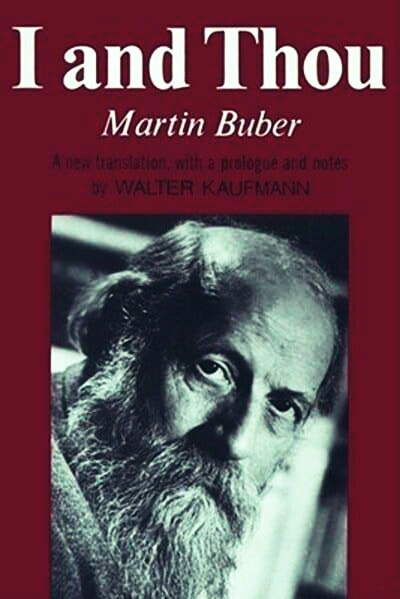EXISTENTIALISM
VS. PERSONALISM
(The Philosophy of Selfhood)
.
by Michael Tsarion
|
|
To know oneself is the beginning of wisdom - Socrates
|
We’ve heard it said by psychologists that human existence is based on the craving for pleasure and avoidance of pain. This is accepted as axiomatic by almost everyone, including most Materialists and atheists. It’s not easy to contradict. Only sadomasochistic types fall outside this standard categorization of nomality, but they’re such a relatively small demographic that they really don’t count, at least not in this regard. Their source of pleasure comes by receiving pain, an odd quirk inherited from very dodgy parenting.
Obviously, we derive pleasure from pleasure itself, as well as from food, drink, sex and having basic needs quickly met. Any delay causes bouts of frustration, longing, pain and aggression. But we also gain pleasure by desiring and receiving wealth, power and worldly recognition. Sometimes, at the end of the line - after mundane needs are satiated - we might seek a higher order of pleasure from learning and attaining “wisdom.”
We may believe we’re satisfied after joining some religious or mystical sect, by becoming Born-Again Christians, Buddhist monks or Theosophists. However, few of these paths provide us with insight into how to overcome the pleasure-drive. They take it for granted that, at the journey’s end - and even before that point - we’re ultimately eager to pleasure ourselves. If it’s not via worldly luxuries, it’s by way of more rarefied dishes. Discomfort along the way is endured by novices because, once again, there’s a pay-off at the end - often called "bliss."
In short, most attempts at life-improvement, whether external or internal, are based on our underlying desire to experience more pleasure. Bodily gratification soon transmutes into mental need.
Obviously, we derive pleasure from pleasure itself, as well as from food, drink, sex and having basic needs quickly met. Any delay causes bouts of frustration, longing, pain and aggression. But we also gain pleasure by desiring and receiving wealth, power and worldly recognition. Sometimes, at the end of the line - after mundane needs are satiated - we might seek a higher order of pleasure from learning and attaining “wisdom.”
We may believe we’re satisfied after joining some religious or mystical sect, by becoming Born-Again Christians, Buddhist monks or Theosophists. However, few of these paths provide us with insight into how to overcome the pleasure-drive. They take it for granted that, at the journey’s end - and even before that point - we’re ultimately eager to pleasure ourselves. If it’s not via worldly luxuries, it’s by way of more rarefied dishes. Discomfort along the way is endured by novices because, once again, there’s a pay-off at the end - often called "bliss."
In short, most attempts at life-improvement, whether external or internal, are based on our underlying desire to experience more pleasure. Bodily gratification soon transmutes into mental need.
Enlightenment is fun...no one stops you chasing bliss.
A great many people allegedly on a “spiritual” quest are, unknown to themselves, driven exclusively by the pleasure-drive. Some with more awareness try covering this up by concocting sob-stories about the pain and suffering they’ve endured (a very common practice in New Age circles). In actual fact, they’re simply tired of glutting their senses on the world’s banalities. They “suffer” only because the hedonic carnival ride came to an end, and they find themselves left in a heap of childish dismay. Yes, it's all so tragic.
It rarely dawns upon us that the reason we seek new pleasures is largely due to hedonic exhaustion. We exhaust ourselves in the pursuit of one pleasure after another. Jaded after one exploit, we eagerly move on to something apparently more exciting and captivating.
For a great many people, the "spiritual search" amounts to little more than flitting like a butterfly from one sensation to another. First I got a kick out of a big house and swimming pool. Now it's about sitting in front of my guru in the ashram, reading books on the "law of attraction" and seeking contact with God. Same tea, different cups.
It’s often no different when, at a given point, we find ourselves craving deeper knowledge and wisdom. All too often we take that path after becoming exhausted with more mundane pastimes. Naturally, it’s not a very authentic process. Which brings us to an important question:
What is authenticity?
More to the point, who is to say what is authentic or not? Can another person declare your activities and outlooks authentic or inauthentic? Surely, it must be a decision only you can make, right?
This problem went a long way to unseating the philosophy of Existentialism, which made Authenticity a central precept.
Six of the foremost advocates of Authenticity were Soren Kierkegaard, Friedrich Nietzsche, Max Stirner, Martin Heidegger, Gabriel Marcel and John-Paul Sartre. Four out of the six were quiet introverts who either explicitly or implicitly expounded the doctrine of Personalism. Each thinker believed it was ultimately for each individual to classify himself as authentic or not. Any statement or assessment by others, or by society, is absolutely meaningless. They held that conformity to social definitions of what it means to be authentic is by definition inauthentic.
It rarely dawns upon us that the reason we seek new pleasures is largely due to hedonic exhaustion. We exhaust ourselves in the pursuit of one pleasure after another. Jaded after one exploit, we eagerly move on to something apparently more exciting and captivating.
For a great many people, the "spiritual search" amounts to little more than flitting like a butterfly from one sensation to another. First I got a kick out of a big house and swimming pool. Now it's about sitting in front of my guru in the ashram, reading books on the "law of attraction" and seeking contact with God. Same tea, different cups.
It’s often no different when, at a given point, we find ourselves craving deeper knowledge and wisdom. All too often we take that path after becoming exhausted with more mundane pastimes. Naturally, it’s not a very authentic process. Which brings us to an important question:
What is authenticity?
More to the point, who is to say what is authentic or not? Can another person declare your activities and outlooks authentic or inauthentic? Surely, it must be a decision only you can make, right?
This problem went a long way to unseating the philosophy of Existentialism, which made Authenticity a central precept.
Six of the foremost advocates of Authenticity were Soren Kierkegaard, Friedrich Nietzsche, Max Stirner, Martin Heidegger, Gabriel Marcel and John-Paul Sartre. Four out of the six were quiet introverts who either explicitly or implicitly expounded the doctrine of Personalism. Each thinker believed it was ultimately for each individual to classify himself as authentic or not. Any statement or assessment by others, or by society, is absolutely meaningless. They held that conformity to social definitions of what it means to be authentic is by definition inauthentic.
|
|
Soren Kierkegaard (1813-1855) is regarded as the father of Existentialist philosophy. He was the first major thinker to define subjecthood along positive lines. Although there can be little doubt that subjecthood is a response to the conditioning of parents and the world, it is also the part of us that initiates the process of radical differentiation from that conditioning. For an authentic person, subjecthood blossoms into Selfhood. For this to occur, one must heed the voice of conscience. For Kierkegaard, authenticity is a form of high morality, in which one cares for the Self by no longer conforming to the world’s inhuman dictates, and prevents the world from intruding and desecrating the purity of the Self.
|
|
What this amounts to is that any comment except one’s own, on the subject of Existential authenticity, is invalid. If the one speaking isn’t themselves authentic, how can their assessment of someone else matter?
But we can’t leave it there. This is because it can be argued that someone’s personal statement about their supposed authenticity isn’t necessarily to be believed. It may be utterly false. Given this fact, we find ourselves caught in an impasse. If we grant that it’s not our job to comment on the authenticity of another person, we must also grant that we’re unable to categorically trust their statements about themselves, however well-meaning. If a person we know tells us they are “authentic,” how are we to tell if they’re right? And if they were to state the opposite - that they’ve lived their whole life without true meaning - how are we to contradict them? Maybe it’s true, and maybe it's not. Surely, only they know for sure.
In this case, we’re bound to say “I’d need to be them to judge the situation correctly.”
If there is an overriding reason why Existentialism ceased being the foremost philosophy of modernity, this is it.
Given that an authentic human exists, we only have their word for it. As said, the opinions of others are merely opinions. So what can be done?
Gabriel Marcel provides us with the best answer. Like Kierkegaard before him, Marcel had no problem laying things at the door of the individual. The Outsider has the perfect right to declare himself authentic, whether he’s believed or not. In fact, it’s one definition and sign of authenticity to not care one whit what other people think, say or do. I don’t trespass on what the Crowd thinks of itself, on what another person thinks about themselves, so I don’t allow their thoughts or words about me to intrude and overly discolor my Self-image. I know that I've many changes to make in life, but I'll tend to it myself. I free everyone from the burden of fixing me.
I free myself from the tyranny of the "We," "Us" and "Our."
But we can’t leave it there. This is because it can be argued that someone’s personal statement about their supposed authenticity isn’t necessarily to be believed. It may be utterly false. Given this fact, we find ourselves caught in an impasse. If we grant that it’s not our job to comment on the authenticity of another person, we must also grant that we’re unable to categorically trust their statements about themselves, however well-meaning. If a person we know tells us they are “authentic,” how are we to tell if they’re right? And if they were to state the opposite - that they’ve lived their whole life without true meaning - how are we to contradict them? Maybe it’s true, and maybe it's not. Surely, only they know for sure.
In this case, we’re bound to say “I’d need to be them to judge the situation correctly.”
If there is an overriding reason why Existentialism ceased being the foremost philosophy of modernity, this is it.
Given that an authentic human exists, we only have their word for it. As said, the opinions of others are merely opinions. So what can be done?
Gabriel Marcel provides us with the best answer. Like Kierkegaard before him, Marcel had no problem laying things at the door of the individual. The Outsider has the perfect right to declare himself authentic, whether he’s believed or not. In fact, it’s one definition and sign of authenticity to not care one whit what other people think, say or do. I don’t trespass on what the Crowd thinks of itself, on what another person thinks about themselves, so I don’t allow their thoughts or words about me to intrude and overly discolor my Self-image. I know that I've many changes to make in life, but I'll tend to it myself. I free everyone from the burden of fixing me.
I free myself from the tyranny of the "We," "Us" and "Our."
|
|
Gabriel Marcel (1889-1973). His work is not presented in a formal academic manner. He preferred to communicate his philosophical insights via poetry, music, drama, letters and journals. He was deeply influenced by Kierkegaard, and is thought to be the first thinker to coin the term "Existentialism." He referred to people of the world as misosophists or “haters of wisdom.”
|
|
Marcel did not mean to say that the Outsider, in this regard, is right to become cold, indifferent and hostile toward the world. No! He is not to act narcissistically or inhumanly. Rather, he is to attentively secure boundaries and empathically mark and honor the all-important dividing-line between himself as “subject” and others as “objects.” It’s inauthentic types who, knowing nothing about this demarcation, can’t differentiate themselves from the mass of humankind. Their identities are welded to those of others. Such a type is not a Self, merely an anonymous Everyman.
For this reason, the average urbanized citizen is bound to exaggerate his social role, his compulsive identification with the Many. His social persona has taken the place of true Selfhood, and boy does he proudly display before the world what he thinks he is and takes himself to be. The less Selfhood, the more identification with groups, cliques, subcultures, political movements and causes. I'm not a free man, I'm a number...I'm mutual in every respect...Hail the Providers!
For this reason, the average urbanized citizen is bound to exaggerate his social role, his compulsive identification with the Many. His social persona has taken the place of true Selfhood, and boy does he proudly display before the world what he thinks he is and takes himself to be. The less Selfhood, the more identification with groups, cliques, subcultures, political movements and causes. I'm not a free man, I'm a number...I'm mutual in every respect...Hail the Providers!
Individuals at work...
For some Existentialists, this is when the term “subject” is taken as being synonymous with Self. Normal usage of the former term does not necessarily denote Self. For a few more discerning philosophers, the term subject merely defines one whose personality is put together, or constructed, by social factors, chiefly the expectations of other people in the same existential mess. It defines the un-unique entity standing-in for the true Self. Too often, after society has done its thing, the Self is suppressed and buried under the subject that, to all intents and purposes, becomes the faux or counterfeit self, namely the ego. Generally speaking, the ghastly transformation is accomplished by seven years of age.
Parents and other family-members are, of course, the primary malefactors. They receive huge doses of pleasure seeing you stripped of uniqueness and Selfhood. The vast majority of parents are committed disciples of Adultism.
Carl Jung called the subject the “persona” or mask, and Karen Horney referred to it as the “Idealized Image.” In both cases subjecthood is construed as an inauthentic structure fashioned by the superego, in response to the dictates of society (or Mitwelt).
Heidegger’s term for this socialized entity is Das Man, or “the One.” He meant it to describe the nondescript robotic conformist without a wholesome core identity. His entire being has been well and truly colonized. From the day he was born, his mind has been occupied territory. He's the perfectly adjustted "smiling depressive" or "docile body."
No doubt Das Man looks like everyone else and functions more or less like his fellow automatons. Doubtless he’s liked and respected, and is an expert hoop-jumper with numerous shiny trophies on his mantlepiece. No doubt he thinks, speaks and acts like others in his world, and no doubt he thinks himself perfectly sane, adjusted and “normal.”
Parents and other family-members are, of course, the primary malefactors. They receive huge doses of pleasure seeing you stripped of uniqueness and Selfhood. The vast majority of parents are committed disciples of Adultism.
Carl Jung called the subject the “persona” or mask, and Karen Horney referred to it as the “Idealized Image.” In both cases subjecthood is construed as an inauthentic structure fashioned by the superego, in response to the dictates of society (or Mitwelt).
Heidegger’s term for this socialized entity is Das Man, or “the One.” He meant it to describe the nondescript robotic conformist without a wholesome core identity. His entire being has been well and truly colonized. From the day he was born, his mind has been occupied territory. He's the perfectly adjustted "smiling depressive" or "docile body."
No doubt Das Man looks like everyone else and functions more or less like his fellow automatons. Doubtless he’s liked and respected, and is an expert hoop-jumper with numerous shiny trophies on his mantlepiece. No doubt he thinks, speaks and acts like others in his world, and no doubt he thinks himself perfectly sane, adjusted and “normal.”
Fear is the mind-killer...
For Heideggerians, Das Man has been normalized as well as institutionalized. Chances are he would not have it any other way. Being an Outsider would only tear away his coveted securities and make him feel desolate and confused. He’d think he’s guilty of some great infraction. Such a man is ultimately safe, however, because, as said, no one is in a position to call him out. No one can declare him “inauthentic,” without reeking of inauthenticity themselves.
What a paradox!
What a paradox!
|
|
Martin Heidegger (1889-1976), was inclined to think of the “subject” largely as an inauthentic construct, a phantom-self or Frankensteinean monster stitched together by parents and society. It is merely the other side of the coin of objectivity, the subject-object divide being the outworn remnant of the false Cartesian view of reality, with no philosophical value. Heidegger critiqued Kierkegaard’s view, saying that he hadn’t gone far enough in his deconstruction of subjecthood. This was probably because Kierkegaard, as a Christian, wasn’t prepared to think beyond religious dogma in the way a more ardent Existentialist should. Christian Existentialists include Paul Tillich, Gabriel Marcel, Nikolai Berdyaev and Fyodor Dostoevsky.
|
|
|
|
The most common form of despair is not being who you are - Soren Kierkegaard
|
|
Taking a page from Kierkegaard’s book, Marcel understood that the only way out of the paradox is Personalism. It is for the subject to realize that he’s not quite a Self. Realizing that his subjecthood is inauthentic by default, he understands that he is charged by his own conscience to do something about it. He must discover the difference between aloneness and loneliness, and surgically remove himself from the Mass into which he has been thrown.
In this way his subjecthood becomes authentic rather than inauthentic. Das Man - the grey man - becomes Dasein, says Heidegger.
As Kierkegaard emphasized, it’s not an easy process abstracting oneself from the social maelstrom. It means giving up a lot of pleasure. It means doing without the approval of others, and plunging into an abyss of existential anxiety.
Decoupling from society is not, however, necessarily an act of wild rebellion. Such antisocial acts lead only to another mode of inauthenticity, rife in our world. There’s no end to inauthentic poses of authenticity. In fact, we’re up to our necks in it. After glutting ourselves with inauthentic pursuits, we indulge in some clever window-dressing and, hey-presto, we’re authentic. Anyone seeing through the facçade, and contradicting us, can always be accused of being inauthentic. After all, who are they to doubt and defame me, right?
What a convenient exit-strategy.
This is why the Subjectivists, like Kierkegaard and Marcel, were right. Personalism is the fulfilment of Existentialism. Without it, Existentialist philosophy is insufficient. The subjective isn’t, therefore, to be altogether negated. In their opinion, the Self cannot come to bear until the subject - put together by the inauthentic world - autonomously deconstructs itself.
In this way his subjecthood becomes authentic rather than inauthentic. Das Man - the grey man - becomes Dasein, says Heidegger.
As Kierkegaard emphasized, it’s not an easy process abstracting oneself from the social maelstrom. It means giving up a lot of pleasure. It means doing without the approval of others, and plunging into an abyss of existential anxiety.
Decoupling from society is not, however, necessarily an act of wild rebellion. Such antisocial acts lead only to another mode of inauthenticity, rife in our world. There’s no end to inauthentic poses of authenticity. In fact, we’re up to our necks in it. After glutting ourselves with inauthentic pursuits, we indulge in some clever window-dressing and, hey-presto, we’re authentic. Anyone seeing through the facçade, and contradicting us, can always be accused of being inauthentic. After all, who are they to doubt and defame me, right?
What a convenient exit-strategy.
This is why the Subjectivists, like Kierkegaard and Marcel, were right. Personalism is the fulfilment of Existentialism. Without it, Existentialist philosophy is insufficient. The subjective isn’t, therefore, to be altogether negated. In their opinion, the Self cannot come to bear until the subject - put together by the inauthentic world - autonomously deconstructs itself.
|
|
The greatest hazard of all, losing one’s self, can occur very quietly in the world, as if it were nothing at all. No other loss can occur so quietly; any other loss...is sure to be noticed - Soren Kierkegaard
|
The part of us put together by the world must defy its maker. That’s the first step toward true authenticity. It’s the first bone fide authentic act and rite of passage. It’s born from one’s rejection of society’s absurd standards, yes, but also from sorge or Self-care. If one or both are not present as motives, one is automatically inauthentic, affecting change only because one's pleasure-drive demands it. One has merely grown tired of previous fare and now wants authenticity for banal reasons.
It’s what happened to a entire generation back in the ‘50s and ‘60s, when everyone was "authentic," just because they listened to the same god-awful hippy-dippy music, read the same exotic books, mouthed the same tawdry pop-slogans and rolled around in the mud at Woodstock. No one noticed the glaring contradiction and impossibility of these preposterous histrionics. It was nothing more than another infantile fashion-statement based on pleasure addiction. Of course the masses went for it with gusto.
It’s what happened to a entire generation back in the ‘50s and ‘60s, when everyone was "authentic," just because they listened to the same god-awful hippy-dippy music, read the same exotic books, mouthed the same tawdry pop-slogans and rolled around in the mud at Woodstock. No one noticed the glaring contradiction and impossibility of these preposterous histrionics. It was nothing more than another infantile fashion-statement based on pleasure addiction. Of course the masses went for it with gusto.
|
|
In Disciples of the Mysterium, I lay out the case for the philosophy of Selfhood. My particular form or branch of Personalism I call Objectionism. (Here for more...)
|
|
As Kierkegaard and Marcel knew all too well, ego-deconstruction is not an easy task. If one is to be truly authentic, it often means defying one-dimensional friends and family members. It means going it alone in one’s choices and decisions. It may mean hurting people one cares about. It means seeking after a state of consciousness that may not even exist. One may need to suffer through years of introspection and self-contemplation. It may mean making radical changes to how one earns a living, and how one interacts with the mass of nondescript types happy to go along to get along. This alone is a distressful experience which only a true Outsider is ready and able to endure.
Most important of all, it means that one takes on the responsibility of Self-judgment. The only person who can deem you “authentic” is yourself. Although it leads to a paradox in social terms, so what, retorts Kierkegaard. Just because this is the case, does it condemn us to remain within the confines of the inauthentic world of Das Man.
Most important of all, it means that one takes on the responsibility of Self-judgment. The only person who can deem you “authentic” is yourself. Although it leads to a paradox in social terms, so what, retorts Kierkegaard. Just because this is the case, does it condemn us to remain within the confines of the inauthentic world of Das Man.
|
|
Pascal in the seventeenth century observed the great efforts people make to divert themselves, and he opined that the purpose of the bulk of those diversions was to enable people to avoid thoughts of themselves - Rollo May
|
|
|
|
The Graduate (1967), is a superb movie with insightful and humorous Existentialist themes. Other recommended movies in the same vein include The Moon and Sixpence, The Razor's Edge, The Fountainhead, Paris Texas, Midnight Cowboy, Wings of Desire, Kes, Fearless, About Schmidt, One-Hour Photo, Being There, Vanilla Sky, The Truman Show and American Beauty, etc.
|
|
No, say the great Existentialists. We must be okay with the social loggerhead. It does not matter what others say about it. It only matters what I say, even if I’m lying to myself and living in what Sartre calls “Bad Faith.”
It’s all right, say Kierkegaard and Marcel, to be self-deceptive. Its what conscience is for; the part of my being that doesn’t broach self-deception or any other kind of immorality. Lying to myself about my authenticity serves a holy purpose, said Kierkegaard, because it brings me before my inner judge - the Self. If I lie to myself, I am soon poisoned by my own self-loathing. It's a good thing, says Kierkegaard. Eventually, I'm driven by despair toward the very place I wish to avoid - the threshold of the Imperial Self.
The authentic man’s problem starts with his first attempts at social differentiation. He feels enormous guilt for defying society and trying to go his own way. Later he feels shame for ever having conformed to society’s norms, which meant ignoring the needs of his true Self. Most people live their entire lives with a disturbing sense of inner shame over just this predicament. It’s the origin of a lot of existential anxiety.
Becoming authentic is the only salve for inner guilt, shame and angst. There’s no other way of appeasing the conscience - the voice of the Self within.
It’s all right, say Kierkegaard and Marcel, to be self-deceptive. Its what conscience is for; the part of my being that doesn’t broach self-deception or any other kind of immorality. Lying to myself about my authenticity serves a holy purpose, said Kierkegaard, because it brings me before my inner judge - the Self. If I lie to myself, I am soon poisoned by my own self-loathing. It's a good thing, says Kierkegaard. Eventually, I'm driven by despair toward the very place I wish to avoid - the threshold of the Imperial Self.
The authentic man’s problem starts with his first attempts at social differentiation. He feels enormous guilt for defying society and trying to go his own way. Later he feels shame for ever having conformed to society’s norms, which meant ignoring the needs of his true Self. Most people live their entire lives with a disturbing sense of inner shame over just this predicament. It’s the origin of a lot of existential anxiety.
Becoming authentic is the only salve for inner guilt, shame and angst. There’s no other way of appeasing the conscience - the voice of the Self within.
|
|
Martin Buber (1827-1906). Rephrasing Hegel’s ideas in poetic language, his concept of the I-Thou dynamic helps distinguish an authentic person from his opposite.
|
|
An authentic type suffers, but in a different way than most. He lessens the neurotic guilt felt by non-conformists, and the legitimate shame felt by conformists. Nevertheless, his predicament is how to live authentically in an inauthentic world. He also frets about how he can transcend recreation and occupation, and arrive at his Dharma or vocation?
Obviously, in this search he cannot be overly influenced by other people. Their decisions and opinions cannot affect his. One of the great hand-rails assisting other people is not accessible to the Outsider. Any decision, if it is to be authentic, must be made by him alone. It’s a source of great distress.
One suffers by not making it and by making it. Marcel’s writings chiefly address this great problem. He points out that resisting the masses is but one phase of the great journey. It’s the Nietzschean stance, to be sure. Valuable as it is, it plays little part in one’s search for what they must do in life. Knowing what one dislikes certainly wins one a few stripes, but the game isn’t over until one discovers how to activate their dharma. Existentially, this demands one be “Self-born” and “Self-baptized.” In any case, there can be no authority but oneself.
Obviously, in this search he cannot be overly influenced by other people. Their decisions and opinions cannot affect his. One of the great hand-rails assisting other people is not accessible to the Outsider. Any decision, if it is to be authentic, must be made by him alone. It’s a source of great distress.
One suffers by not making it and by making it. Marcel’s writings chiefly address this great problem. He points out that resisting the masses is but one phase of the great journey. It’s the Nietzschean stance, to be sure. Valuable as it is, it plays little part in one’s search for what they must do in life. Knowing what one dislikes certainly wins one a few stripes, but the game isn’t over until one discovers how to activate their dharma. Existentially, this demands one be “Self-born” and “Self-baptized.” In any case, there can be no authority but oneself.
|
|
Martin Buber's poetic masterpiece clarifies the central precepts of Existentialism, particularly in terms of the question and problem of Authenticity. Buber shows that the Outsider is not one who necessarily rejects deep meaningful relationships with other people. The true Self does not stand beyond relationship. On the contrary, say Hegel and Buber, the Self can only be awakened by way of relationship. So much for eastern asceticism.
|
|
|
|
This above all: to thine own self be true - Shakespeare
|
So we see that Existentialism’s inherent weakness is overcome by the philosophy of Personalism. As I advocate in my writings on the subject, Personalism is the philosophy into which all other philosophies are finally destined to flow. Each and every one of the world’s philosophies are wanting because they lack this superlative element. In short, there can be nothing more inauthentic in a school of ideas than the absence of the Self. A handful of deeply misunderstood thinkers rightly made it the supreme priority, whereas most of those beloved by the masses never bother giving it a nod. This is why, in our darkening world, it’s still a case of the One against the many.
. . .
Michael Tsarion (2021)
